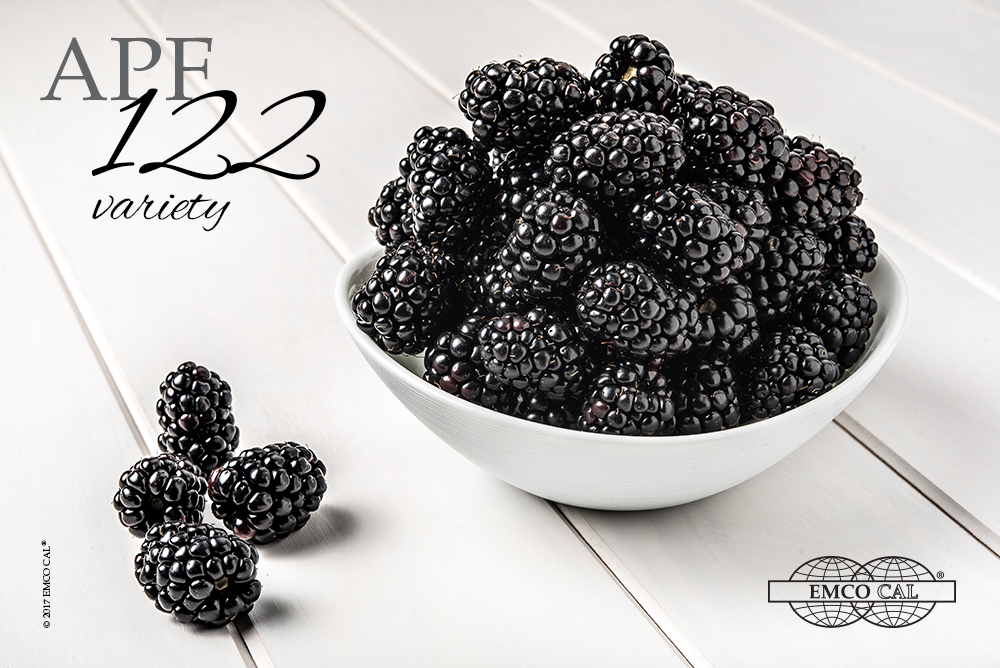Mary Carmen®
(APF 122 cv.)

Attributes
- Exceptional flavor and aromatics
- Consistent black, glossy color
- Uniformly well-shaped fruit throughout the season
- Excellent transportability & shelf-life
- Firm, medium size berry
- Erect growth with moderate vigor
- Highly precocious
- Highly productive
Fruit Characteristics
The University of Arkansas (UA) plant breeder, Dr. John Clark, selected the APF 122 blackberry as a primocane fruiting variety. Canes that emerge in the spring during the first period of vegetative growth produce flower and fruit without passing through a period of dormancy. The APF 122 is a highly precocious cultivar. It initiates fruit production three to four weeks earlier than other primocane blackberry varieties.
The APF 122 blackberry variety yields medium size fruit, averaging 5.8 to 8.8 g per berry. The fruit is round and very firm. The king berries sometimes develop a slightly elongated shape. Secondary berries are of medium size and consistently round. The variety produces a heavy primocane crop, reducing the economic viability of floricane production. Yields average 14 to 16 thousand kg of fresh market berries per ha. When temperatures exceed 30 – 32 °C at the time of flower set, problems with pollination may occur.
Fruit of the APF 122 variety has a high level of soluble solids. Brix of fully ripened fruit averages 11.1. Berries show very little post-harvest color reversion (< 10 %) of the drupelets related to cooling and cold storage. There is little evidence of post-harvest decay or rot when held up to 7 days at 5 °C.
Plant Characteristics
The canes of the APF 122 blackberry variety are erect and moderately thorny. The variety has less vegetative vigor than other UA cultivars. Its moderate vigor reduces the need for extensive tipping. Canes grow to an average of 1.2 m in length over the course of a single growing season. Primocanes emerge both from the crown of the plant as well as from the suckers.
Primocane Management
The APF 122 blackberry variety provides a late season alternative to contemporary floricane production in cold, continental climates. Growers adjust the harvest window through timely pruning over the course of the season. An effective cane management plan must be developed according to the climatic conditions under which it is being grown.
In low chill, subtropical and tropical high elevation environ- ments, the APF 122 variety offers growers a broad season of highly productive, commercial grade blackberry fruit. The genetics of the APF 122 variety extend the potential range for commercial production of high quality blackberry fruit.
Disease Resistance
The APF 122 variety has shown tolerance to powdery mildew, anthracnose, crown gall (Agrobacterium) and botrytis.
*Characteristics may vary depending on weather conditions, day length, soil type and location.

